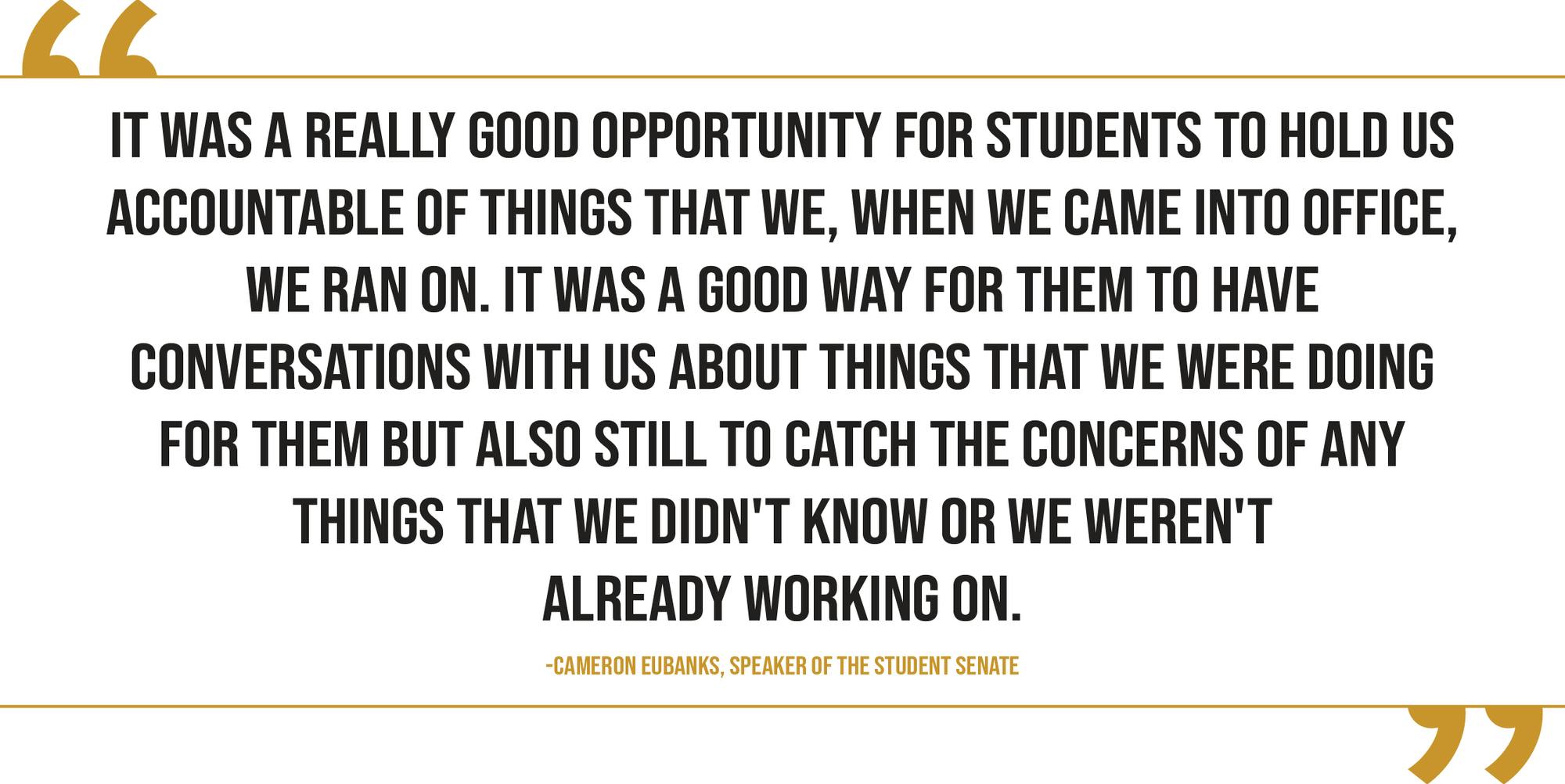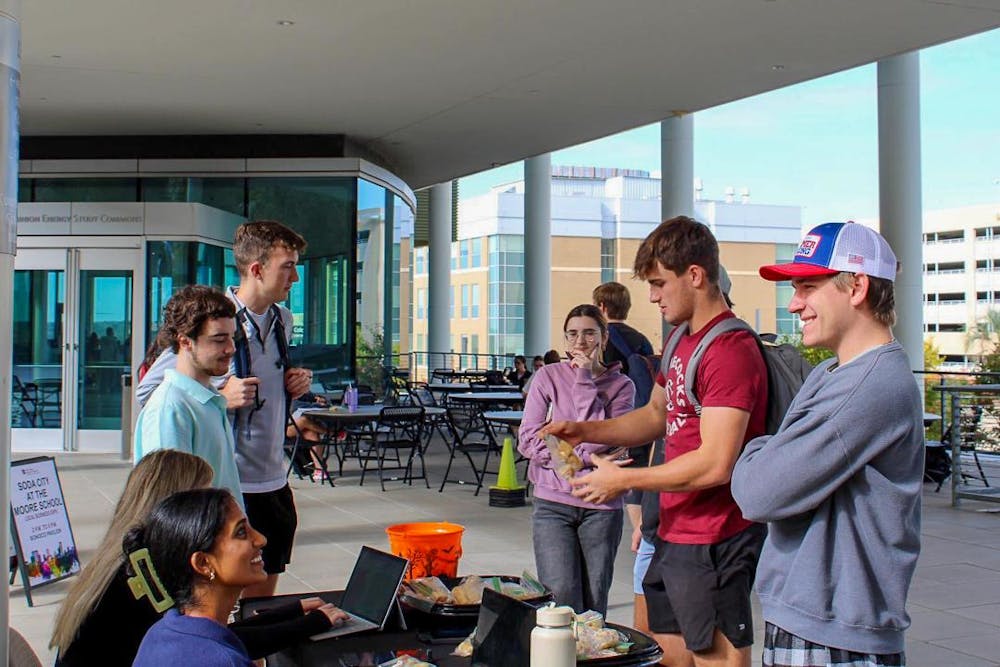Student Government held its Food for Thought initiative at the end of October to give the student body a chance to discuss its concerns about the university with members of the student senate and members of the executive branch in exchange for a bag of Chick-Fil-A chicken minis.
Members of student government set up across campus on Greene Street, in front of Darla Moore School of Business, the Science and Technology Building and the Swearingen Engineering Building as well as on the Pickens Street bridge. Students were asked to share problems that they have seen or experienced around campus.
These concerns were documented to help Student Government members identify students' biggest concerns at this point in the semester, and the data will be compiled into a full report that will be made available to students in the next couple of weeks, Speaker of the student senate Cameron Eubanks said. Data provided by Eubanks shows the biggest concerns among students involved parking, Wi-Fi, facility improvements and expansions, quality of instruction and academic advising.
Student Body President Emmie Thompson said the event allowed Student Government officials to get direct feedback from students and address their concerns appropriately and then presented to university administration and other stakeholders.
“We don’t want to just make legislation or do initiatives that aren’t based on anything. We want to actually meet the needs of students. And I think that it’s important to — you know, we campaign on things in the spring that we’ve heard students say, but to revisit what is the big problems right now," Thompson said.
Eubanks echoed Thompson's objectives and said the event was important so that students could hold them accountable for sticking to their campaign promises and addressing their concerns.
“It was a really good opportunity for students to hold us accountable of things that we, when we came into office, we ran on. It was a good way for them to have conversations with us about things that we were doing for them but also still to catch the concerns of any things that we didn't know or we weren't already working on,” Eubanks said.

Both Thompson and Eubanks said that it will be important to address the concerns by passing legislation but also by advocating and communicating the core issues to the proper university officials.
One of the most common concerns from students was parking, and Thompson and Eubanks said the university's new director of parking and transportation services, Brian Favela, is trying to bring modern technology to campus that they hope will better student parking experiences.
“The new director, he was able to work on a program at LSU that was essentially a digital platform that allowed students to see what lots were available and how many spaces were available in those lots. So we're hoping to bring that type of technological advancement to USC and hopefully expand it to the garages as well,” Eubanks said.
Thompson said she also wants to spread awareness about parking locations near each academic college as well as when parking permit applications open and close for each semester.
“We've had conversations with parking that every single student should receive an email before each semester saying when permits become available, when to renew, where all you can park and where the most convenient places for you to park based on your academic college,” Thompson said.
Thompson also said the university is currently working on phase two of its network modernization plan, which will incrementally upgrade the Wi-Fi network in student hubs around campus.
Thompson said that Student Government officials successfully helped advocate for getting the Wi-Fi updated in Thomas Cooper Library over winter break this year instead of when it was originally scheduled to be updated during the summer of 2024.
Data from the event also shows that students also asked for proper facility maintenance in certain areas, such as the Darla Moore School of Business' restrooms and the elevators in McMaster.
Thompson said that the main action Student Government officers can take with these cases is to advocate to the appropriate university officials.
“We meet regularly with Jeff Perkins, who's the COO, and Jason Lambert, who's the SVP of facility services. So making sure we are relaying these concerns to them, because sometimes I don't think they're aware of what's wrong. So making sure that they know these things, and if they're not the people to be contacted, who we should be directed to,” Thompson said.
Students also brought up the need for more study spaces with longer hours on campus, specifically in the library. Senator Tyler Morgan, who co-sponsored the recommendation to extend Thomas Cooper Library's hours during final exam season at the Oct. 11 student senate meeting, said he agreed that this was a necessary priority.
“The point of the university is to be there to provide the resources for the students to succeed, no matter what those resources look like,” Morgan said.
Thompson said changes to the library's hours could go into effect in the spring of 2024, but they could also potentially kick in for this semester’s final exam season depending on funding from the university.
Both Thompson and Eubanks said they hope that students know they will be working with university officials about the concerns raised during this event.
“A lot of these concerns, they require maybe solutions that we may not be able to fully foresee within the rest of our term, but it is something that is meaningful work to start and to really, really get a good progress made on the concerns,” Eubanks said.

